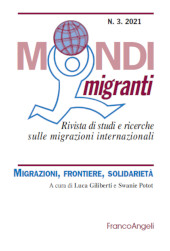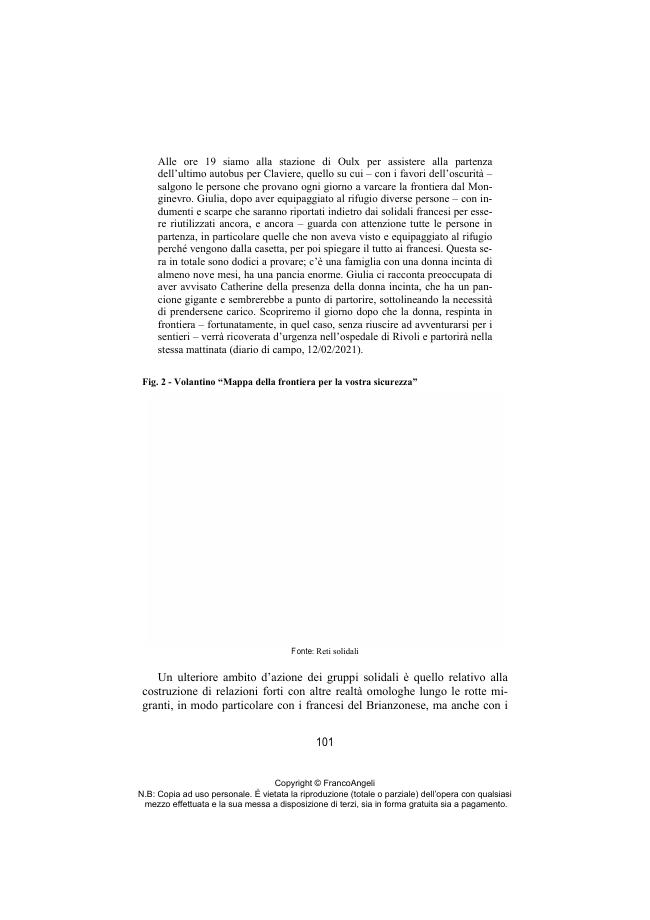Solidarity at the border : support network for migrants in transit in the Susa Valley
89-112 p.
A partire dal 2015, con la "chiusura" di diverse frontiere interne in Europa, migliaia di migranti rimangono bloccati nel tentativo di varcare il confine tra l'Italia e la Francia. Come in altre borderlands, in Val di Susa luogo storicamente caratterizzato da diverse mobilitazioni territoriali al confine con il Brianzonese, emergono due reti di solidarietà, che supportano senza alcuna contropartita mercantile il viaggio dei migranti attraverso l'ospitalità, la cura e altre pratiche solidali. Le due reti valsusine si fanno espressione di diversi approcci, discorsi e pratiche, condividendo differenti ambiti di azione e definendo una risposta complementare al passaggio dei migranti sul territorio.
Il presente articolo analizza le reti di solidarietà al transito sul nodo di frontiera della Val di Susa, il loro rapporto con le rotte migranti e i processi di criminalizzazione che attorno ad esse si costituiscono. I risultati della ricerca, iniziata nel febbraio 2020 e tuttora in corso, si basano su un processo etnografico che ha alternato l'immersione sul campo con tecniche di ricerca da remoto, nei periodi in cui le misure antipandemiche impedivano la presenza fisica, sulla scia di un approccio multimodale. [Testo dell'editore].
Since 2015, with the "closure" of several internal borders in Europe, thousands of migrants have been stranded trying to cross the border between Italy and France. As in other borderlands, in the Susa Valley a place historically characterised by different territorial mobilizations on the border with the Briançon area, two solidarity networks emerge, which support the migrants' journey through hospitality, care and other solidarity practices without any mercantile compensation. The two Valsusian networks have different approaches, discourses and practices, sharing different fields of action and defining a complementary response to the passage of migrants on the territory.
This article analyses the solidarity networks in the Susa Valley border, their relationship with the migrant routes and the processes of criminalization that surround them. The results of the research, which began in February 2020 and is still ongoing, are based on an ethnographic process that alternated field immersion with remote research techniques, during the periods when antipandemic measures prevented physical presence, in the wake of a multimodal approach. [Publisher's text].
Ist Teil von
Mondi migranti : 3, 2021-
Artikel aus derselben Ausgabe (einzeln erhältlich)
-
Informationen
ISSN: 1972-4896
KEYWORDS
- rotte migranti, solidarietà, criminalizzazione, frontiera, weaponization, Movimento NoTav
- migrant routes, solidarity, criminalization, border, weaponization, NoTav Movement



